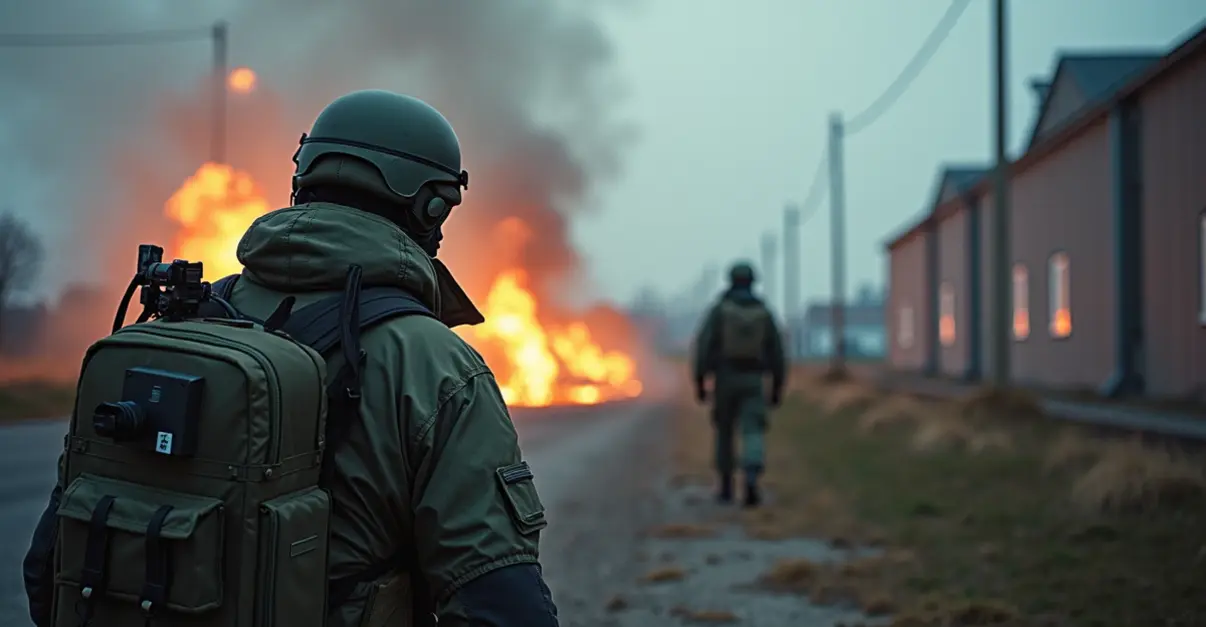Widespread Destruction Across Ukraine
Russia has launched one of its most devastating attacks on Ukraine's energy infrastructure, firing over 650 drones and 50 missiles in a massive overnight assault that has crippled the country's power grid. Ukrainian President Volodymyr Zelensky confirmed the scale of the attack, stating that 'emergency and rescue operations are underway in many regions' following the coordinated strikes that killed at least two people and injured dozens more, including children.
Critical Infrastructure Targeted
The attacks specifically targeted multiple energy facilities across Ukraine, causing severe damage to critical power generation equipment. Energy company DTEK reported that several power plants suffered extensive damage, leading to widespread blackouts affecting millions of Ukrainians. 'Equipment has been heavily damaged and power has been cut off in large parts of the country,' said Ukrainian Energy Minister German Galushchenko, highlighting the systematic nature of Russia's energy warfare strategy.
According to recent reports, this represents the latest in a sustained Russian campaign targeting Ukraine's power grid as winter approaches, creating what humanitarian officials describe as a systematic energy terror campaign against civilian infrastructure.
Humanitarian Crisis Deepens
The attacks have resulted in significant civilian casualties, with 15 people injured in Zaporizhzhia, including five children, and five injured in Vinnytsia, where a 7-year-old child suffered serious injuries. In the Kyiv region, at least one person was reported injured as emergency services scrambled to respond to the widespread damage.
As analysis shows, the systematic targeting of Ukraine's power grid threatens to create a humanitarian catastrophe during the approaching winter months, with millions facing potential heating shortages and disruptions to essential services including medical care and water supply.
NATO Response and Regional Tensions
In response to the escalating situation, Poland took immediate defensive measures, temporarily closing two airports in Radom and Lublin and scrambling fighter jets. The Polish Ministry of Defense confirmed that Polish forces intercepted a Russian reconnaissance aircraft over the Baltic Sea, marking the second such incident in recent days.
'This is not an isolated incident,' stated NATO Secretary General Mark Rutte, referring to recent airspace violations. According to NATO documentation, the alliance has been on high alert since September when more than twenty Russian drones breached Polish airspace, followed by three Russian fighter jets violating Estonian airspace for 12 minutes.
Strategic Implications
The timing of these attacks is particularly concerning as Ukraine prepares for winter. Energy experts estimate that Russia has already destroyed approximately 65% of Ukraine's energy production capacity, creating what UN officials describe as potentially the most difficult winter period of the conflict so far.
As recent analysis indicates, Russia has shifted tactics to target regional power grids rather than national infrastructure, overwhelming Ukrainian air defenses through sheer volume of attacks and creating localized crises across the country.
The situation represents a critical escalation in the ongoing conflict, with both humanitarian and strategic implications that extend beyond Ukraine's borders and threaten regional stability in Eastern Europe.

 Nederlands
Nederlands
 English
English
 Deutsch
Deutsch
 Français
Français
 Español
Español
 Português
Português










